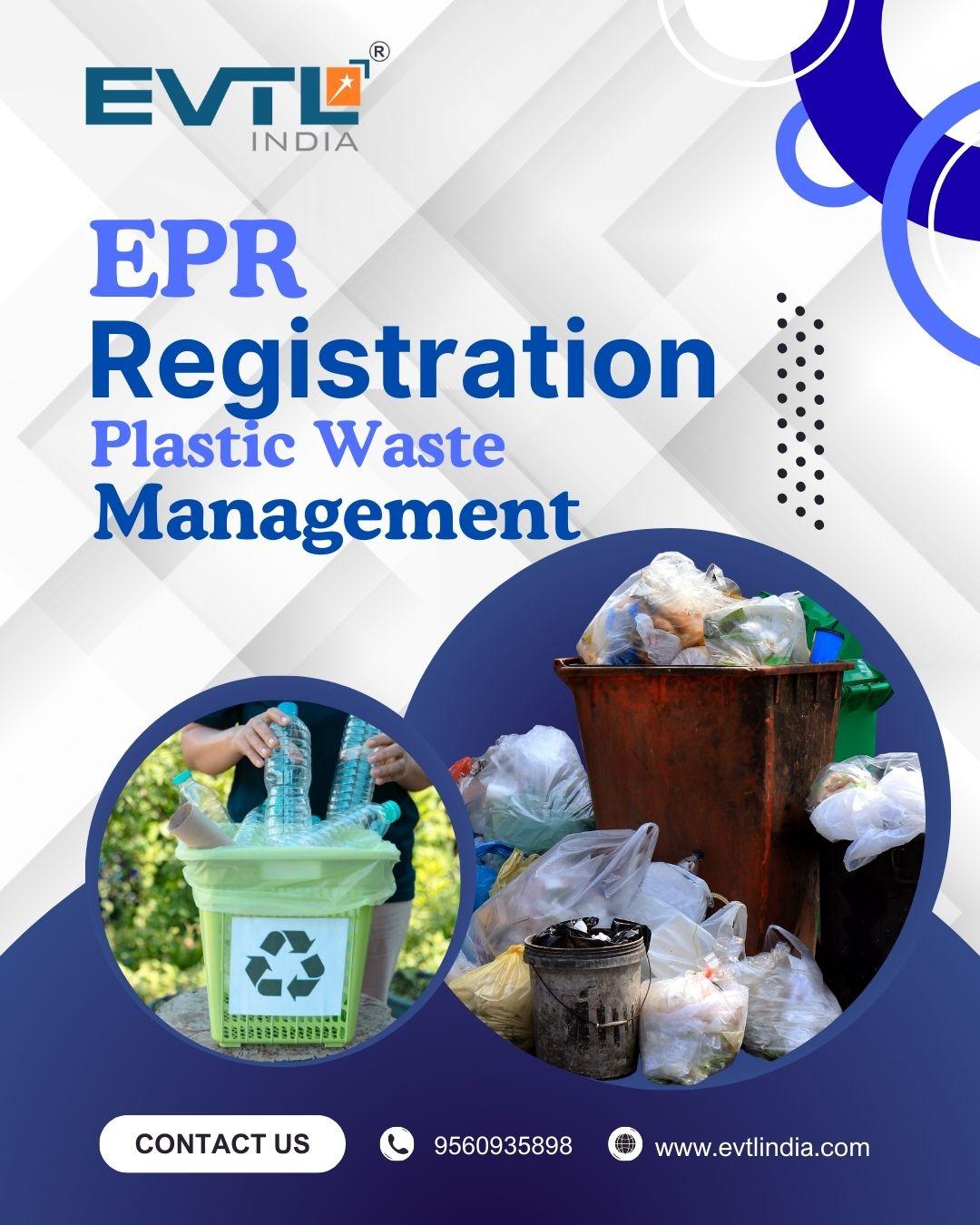Compliance with Plastic Waste Management: EPR Registration Explained

Plastic pollution is one of the most pressing environmental concerns of our time. India, like many other countries, faces a massive challenge in managing the plastic waste generated by its fast-growing economy. To address this issue, the Government of India introduced the concept of Extended Producer Responsibility (EPR) under the Plastic Waste Management (PWM) Rules, 2016 and subsequent amendments. EPR for Plastic places the onus of collecting and processing plastic waste squarely on producers, importers, and brand owners (commonly called PIBOs). Understanding the EPR framework is essential for any business that manufactures, imports, or sells products with plastic packaging.
What Is EPR in the Context of Plastic Waste Management?
Extended Producer Responsibility is a policy approach that makes producers responsible for the entire life cycle of the plastic they introduce into the market. Instead of transferring the burden of waste disposal to municipalities or consumers, EPR Registration for Plastic Waste companies to establish systems to collect, recycle, or dispose of their plastic waste in an environmentally sound manner.
Under the PWM Rules, businesses must register with the Central Pollution Control Board (CPCB) or the respective State Pollution Control Boards (SPCBs) to demonstrate compliance. This registration, often referred to as EPR Registration, is a legal prerequisite for operating in India when plastic packaging is involved.
Who Needs EPR Registration?
The requirement applies to a broad spectrum of entities:
-
Producers who manufacture plastic packaging material.
-
Importers bringing packaged products or plastic packaging into India.
-
Brand Owners selling products under their own label that use plastic packaging, whether or not they manufacture the goods themselves.
Even e-commerce companies and online marketplaces that distribute plastic-packaged goods may need to evaluate their EPR obligations. Failure to register can result in penalties, suspension of operations, or denial of future clearances.
The Step-by-Step EPR Registration Process
-
Assessment of Plastic Usage: Businesses must first measure the quantity and type of plastic they introduce into the market each year. This includes primary, secondary, and tertiary packaging.
-
Application Submission: An application is filed online on the CPCB portal, providing company details, type of plastic used, annual quantities, and a proposed action plan for collection and recycling.
-
EPR Action Plan: Applicants must submit a detailed plan showing how they will collect and channel plastic waste for processing—either through their own systems or via registered recyclers and Producer Responsibility Organizations (PROs).
-
Verification & Approval: CPCB reviews the documents, may seek clarifications, and then issues the EPR Registration Certificate, typically valid for a specified period (often three to five years).
-
Annual Reporting: Registered entities must file annual returns showing how much plastic was collected and processed, ensuring continuous compliance.
Key Compliance Requirements
-
Fulfil Collection Targets: Companies must meet annual targets for the quantity of plastic they retrieve from the market, usually expressed as a percentage of their annual sales.
-
Partner with Authorized Recyclers: Only CPCB-approved recyclers or PROs may be used to process the waste.
-
Maintain Documentation: Records of invoices, waste collection receipts, and recycling certificates are crucial during audits.
-
Submit Periodic Reports: Transparent reporting is essential to avoid fines or suspension of the registration.
Benefits of EPR Registration
While EPR may appear to be an additional regulatory burden, it brings several tangible advantages:
-
Legal Compliance: Registration protects businesses from hefty penalties, show-cause notices, or operational shutdowns.
-
Enhanced Brand Image: Consumers increasingly favor eco-conscious brands. Demonstrating compliance showcases environmental responsibility.
-
Resource Efficiency: Encouraging recycling helps companies save on raw materials, fostering a circular economy.
-
Competitive Advantage: Businesses that act early and integrate sustainability can stand out in markets where buyers and partners prefer compliant suppliers.
Challenges Businesses Face
Despite the benefits, companies often encounter hurdles:
-
Data Collection: Accurately tracking plastic usage across multiple product lines and regions can be complex.
-
Infrastructure Gaps: In some regions, recycling facilities may be limited, making it harder to meet targets.
-
Cost Considerations: Hiring PROs, arranging logistics for waste collection, and conducting audits add to operational expenses.
Best Practices for Smooth Compliance
-
Early Planning: Start gathering data on plastic packaging well before filing deadlines.
-
Engage Experts: Environmental consultants or specialized service providers can guide documentation and liaise with regulators.
-
Collaborate with PROs: Partnering with reliable Producer Responsibility Organizations simplifies collection and reporting.
-
Employee Training: Educating staff about EPR requirements ensures accurate recordkeeping and internal accountability.
The Bigger Picture: Driving a Circular Economy
EPR is more than a compliance checkbox. It represents a shift toward a circular economy where materials are reused and recycled rather than discarded. By holding producers responsible for post-consumer plastic, India aims to reduce landfill dependency, curb marine pollution, and conserve resources.
Conclusion
Compliance with Plastic Waste Management through EPR registration is no longer optional—it is a legal and ethical necessity for any organization dealing with plastic packaging. By understanding the rules, registering promptly, and meeting collection targets, businesses can not only avoid penalties but also contribute to a cleaner environment and a sustainable future. Companies that embrace EPR Registration Consultant as part of their core strategy will not only protect the planet but also gain the trust of regulators, partners, and eco-conscious consumers alike.
- Art
- Causes
- Crafts
- Dance
- Drinks
- Film
- Fitness
- Food
- Spellen
- Gardening
- Health
- Home
- Literature
- Music
- Networking
- Other
- Party
- Religion
- Shopping
- Sports
- Theater
- Wellness



